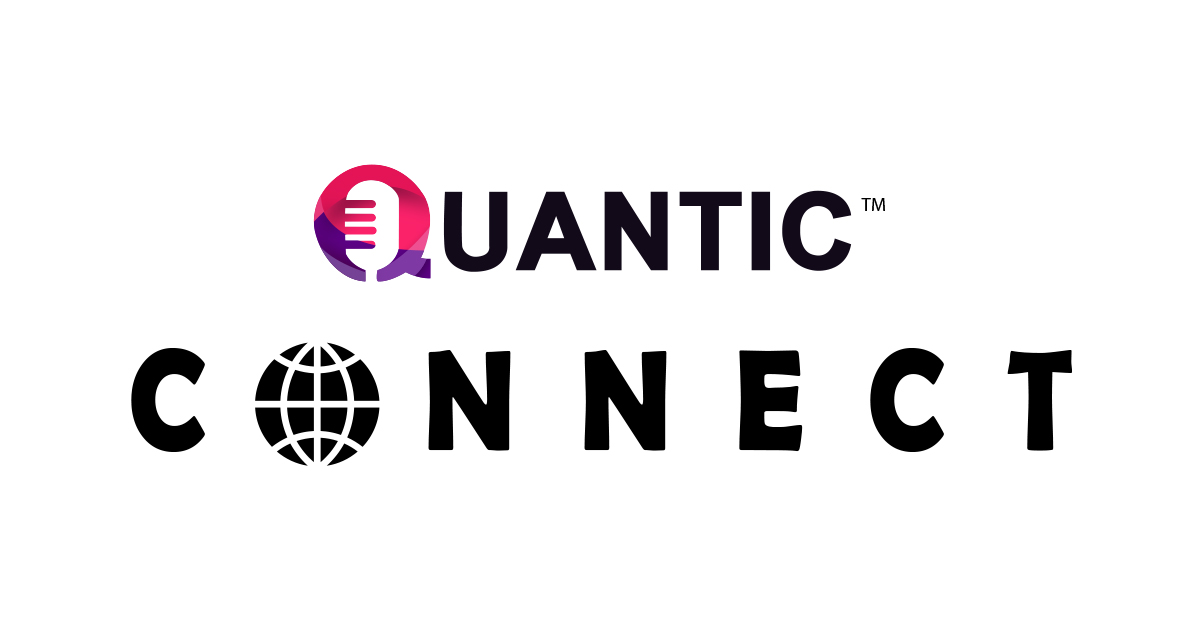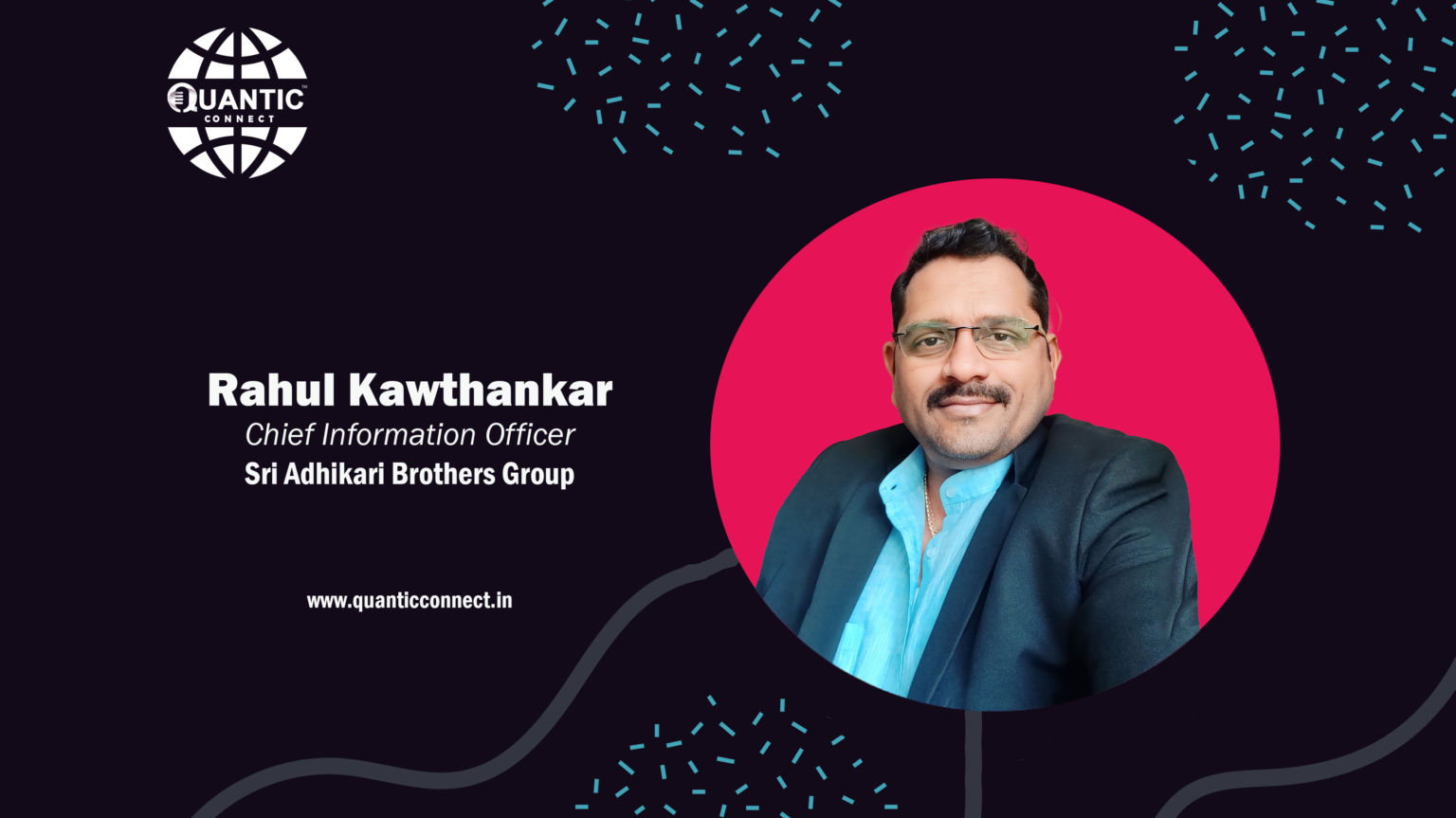Mumbai, October 26: Cybersecurity in the entertainment industry is a critical and ever-evolving field dedicated to safeguarding the digital assets and sensitive information of organizations and individuals involved in the world of entertainment. This dynamic sector encompasses a wide range of sub-industries, including film, television, music, gaming, and live events, making it an attractive target for cyber threats. The entertainment industry relies heavily on digital technologies, from content creation and distribution to marketing and ticketing, making it essential to protect against data breaches, intellectual property theft, and disruptions to operations. This introduction explores the unique challenges and strategies employed to ensure the security and integrity of entertainment industry assets in the face of an evolving cyber threat landscape.
To delve more into these topics, Mr. Rahul Kawthankar who is the Chief Information Officer for Sri Adhikari Brothers Group is in conversation with Mr. Marquis Fernandes, who spearheads the India Business at Quantic India. This article examines the evolving challenges and strategies used to secure entertainment assets in a constantly changing cyber threat landscape.
He is a highly accomplished and versatile executive with over 23 years of experience in Global IT Operations, IT Infrastructure, Project Management, and Cloud Technologies. He has a proven track record of autonomously defining IT strategy, leading business transformation projects, and establishing strategic alliances with senior executives. Rahul excels in directing enterprise IT operations, optimizing data, and implementing solutions that align technology with business goals, all while managing budgets and ensuring systems security. His deep insights into business dynamics and extensive experience make him a valuable asset for top-line and bottom-line transformation.
- What key principles or strategies have been pivotal to your success as a CIO with 23+ years of experience and a broad skill set in IT operations, infrastructure, and project management?
Throughout my journey as a CIO, several key principles and strategies have stood as pillars of success. First and foremost, a strategic vision has been pivotal. Developing and maintaining a technology strategy closely aligned with the broader business goals has not only guided our IT initiatives but also paved the way for innovation and competitiveness. The ability to ensure that our IT initiatives are in lockstep with the strategic objectives of the company, positioning IT as a critical business enabler, has consistently yielded positive results.
Effective leadership is at the heart of my tenure as a CIO. My broad skill set in IT operations, infrastructure, and project management has also played a crucial role in my success. It is essential to possess a well-rounded understanding of the technological landscape, allowing me to effectively lead and manage my teams. Building and nurturing high-performing IT teams, fostering a culture of collaboration and innovation, and setting clear expectations have consistently delivered results. Whether it is implementing robust IT operations, planning and maintaining scalable infrastructure, or executing complex projects, my expertise in these areas has enabled me to deliver results that align with the organization’s objectives. Additionally, staying committed to continuous learning has been non-negotiable. In an era of rapid technological evolution, keeping a finger on the pulse of emerging trends and innovations has allowed us to adapt and thrive. Furthermore, sound risk management, cost optimization, vendor relationships, data governance, and a strong focus on cybersecurity have formed a robust foundation for successful IT operations. Moreover, the ability to adapt to the evolving technology landscape, communicate effectively with both technical and non-technical stakeholders, and foster a culture of innovation has further reinforced my effectiveness as a CIO.
- Can you share your insights on the role of cloud computing in driving digital transformation and how you have effectively leveraged cloud technologies to facilitate business growth and innovation?
We, being a part of the IT community, recognize the essential role that cloud computing plays in driving digital transformation. Cloud technologies have emerged as a powerful catalyst for businesses looking to innovate, streamline operations, and foster growth. I have witnessed firsthand how effectively leveraging cloud solutions can not only optimize IT infrastructure but also propel organizations toward their strategic objectives.
Cloud computing offers scalability, flexibility, and cost-efficiency, which are crucial in today’s dynamic business environment. I have spearheaded initiatives to migrate critical systems and data to the cloud, reducing the burden of on-premises infrastructure and enabling our teams to focus on strategic initiatives. This transition has empowered us to embrace modern application development practices, foster agility, and respond rapidly to changing market demands. Moreover, cloud technologies have enhanced our ability to collaborate and share information, fostering a culture of innovation within the organization. By providing remote access to tools and data, we have allowed our teams to work more efficiently, enabling seamless collaborations without any limitations.
In conclusion, cloud computing has been a keystone of our digital transformation journey, enabling us to drive business growth, foster innovation, and respond nimbly to market changes. By embracing the cloud, we have optimized our IT operations and positioned our organization for a more competitive, agile, and innovative future.
- Could you share instances where your data backup and disaster management strategies effectively protected vital business operations and data assets?
Ensuring robust data backup and disaster management strategies has been at the forefront of my responsibilities. These strategies have proven their worth in safeguarding our vital business operations and data assets on several occasions.
In one instance, a sudden ransomware attack strikes to disrupt our critical data and operations. Data is the most important pillar for every business. Being in the media and entertainment industry, our business relies on daily operations and failing to do so, we could end up incurring huge losses. But, Thanks to a well-orchestrated data backup and disaster strategy, we were able to swiftly recover the necessary data and critical applications from recovery resources. Finally, with the help of the team, we were able to resume our entire operations back on track without any major losses and that too within 7-8 hours of non-operative working hours. The seamless transition ensured minimal downtime, maintaining the trust of the management, and preserving revenue streams. By leveraging the hybrid architecture of backup and disaster systems, we were able to restore essential systems within hours, ensuring business continuity and protecting our valuable data assets.
Such experiences underscore the importance of robust data backup and disaster management plans in safeguarding the integrity of our operations, maintaining customer trust, and mitigating potential financial losses.
- How has your proficiency in IT infrastructure and networking contributed to operational efficiency and strategic alignment?
My expertise in IT infrastructure and networking has been the foundation of our organization’s operational efficiency and strategic alignment. In the rapidly evolving digital landscape, having a robust and agile infrastructure is critical. Through careful design and management of our IT infrastructure, we have achieved high levels of operational efficiency. Our systems run smoothly, and we’ve significantly reduced downtime, allowing our teams to focus on core business activities.
Furthermore, a well-architected network has strengthened our strategic alignment. It has enabled us to support remote work seamlessly and facilitated the integration of innovative technologies, making us more adaptive to industry changes. By ensuring the reliability and scalability of our network, we have established a foundation for innovation. It has enabled the efficient deployment of emerging technologies, such as IoT and cloud computing, aligning our strategic goals with technological advancements and ensuring we stay competitive in our industry.
In conclusion, my proficiency in IT infrastructure and networking has not only optimized our operations but also propelled our organization’s strategic alignment. It has provided the agility and reliability necessary to support our business objectives and adapt to the dynamic demands of the digital age.
- What advice would you like to impart to future Chief Information Officers (CIOs) based on your 23+ years of experience?
I would love to share valuable insights which I have learned throughout my career being a CIO. This is for all those future CIOs who are looking to succeed in this dynamic and critical role.
Always maintain a strong focus on the strategic alignment of technology with the organization’s business goals. Your role is not just about managing IT; it is about using technology to drive business growth and innovation. Build a deep understanding of the industry you are in and be a proactive advocate for how technology can help the company stay competitive and innovative.
Never stop learning, this is non-negotiable. Technology evolves at an incredible pace, and as a CIO, it’s crucial to stay current with the latest trends and innovations. Invest in continuous education and encourage your team to do the same. Embrace a culture of learning and adaptability, as this will be vital in your journey.
Effective leadership is another key pillar of success. Develop strong teams, set clear expectations, and create an environment where innovation and collaboration are encouraged. A well-functioning IT team can make or break your ability to execute your technology strategy.
Finally, be prepared for challenges and changes. The role of a CIO is dynamic, and you will undoubtedly encounter unexpected hurdles and disruptions. Embrace these as opportunities to gain experience and adapt, and always have contingency plans in place. Resilience and adaptability will be your allies in navigating the ever-changing technology landscape.
In conclusion, being a CIO is a multifaceted and rewarding role, and the lessons learned over my 23+ years have taught me the importance of strategic alignment, continuous learning, leadership, and adaptability. I encourage future CIOs to embrace these principles as they embark on their journeys and to remember that the role is as much about people and business as it is about technology.
Remember, being a CIO is not just about managing technology; it is about using technology to create business value. Stay curious, be adaptable, and always put your people first.
To know more about us / publish your article, reach us at
www.quanticindia.com
marquis@quanticindia.com



